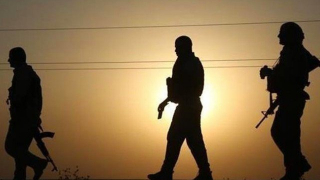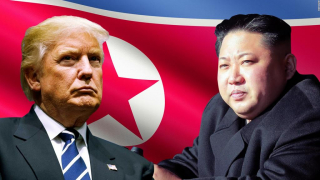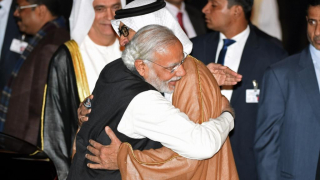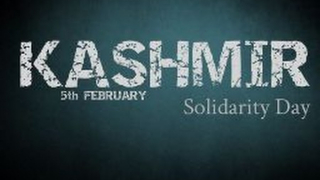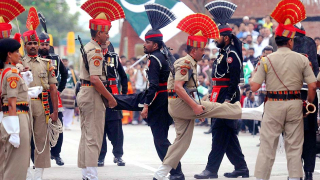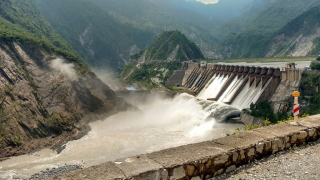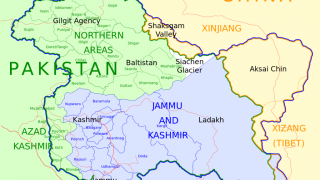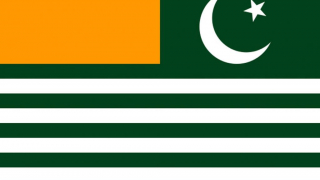Champions of Human Rights and their Conditional Morality
17.06.2019
National security is the first and foremost concern and duty of the state. It varies in its definition depending upon the vision and prioritization of agenda of a particular government of a particular state. Naturally, in a democracy, national security consists of border security, internal security, human security and efforts for peace and conflict resolution to name a few. While the main aim of all the efforts concentrated on the maintenance of national security is the individual subjects in a democracy, they sometimes act as antagonists suffocating the freedoms and opportunities of the very individuals they are supposed to protect and provide relief to. The difference is thus calculated based on the intentions behind the actions and reactions of the state.
For the sake of argument, if a state imposes curfew on the citizens, limiting their freedom of movement, it is considered acceptable if the intentions of the state are visibly true towards the benefit of the citizens. But in cases where the state is a culprit and it challenges the freedoms of movement, expression, and even thought (of the citizens) just to hide its malpractices, it is in contradiction with its duty towards its citizens and the ideals of democracy itself. Today, we see champions of human rights such as the U.S. and France, failing to secure the rights of their citizens. While France at least ratifies the UN bill of human rights (a UNGA resolution compiling UDHR and all the following HR treaties), the U.S. doesn’t even ratify it. Even if they do, their municipal laws provide a space needed to evade human rights in the favour of state interests.
In 2018, a famous French journalist, Ariane Chemin working for ‘Le Monde’ newspaper, published an article providing information about the misconduct of Alexandre Benalla, security head of President Emanuel Macron of France. She broke the story which laid the foundation of the “Benalla Affair” in which more journalists successively revealed his wrong doings, including corruption, violence and secret affairs with foreign oligarchs. But Ariane was summoned by police on the pretext of a 2016 law under which she was accused of “committing or attempting to commit the offense of revealing or disclosing, by any means, any information that could lead, directly or indirectly, to the identification of a person as a member of special forces,” according to a copy of the police summons shared with The Washington Post. This matter was pressed by Elysee Palace (French Republic Presidency) and was interpreted as a threat to national security, when Ariane’s revelation only highlighted the element of transparency which should be present in the functioning of a state in an ideal democracy. Thus, the domestic law of France is interpreted in such a way that it provides safe havens to the culprits, be it an individual or state, maintaining its false image as a protector of human rights and making all that is black, white.
The United States, on the other hand is another big claimant of being the champion of human rights as well. But the first step towards U.S. manipulation of international human rights law is its domestic law which requires 2/3rd majority vote for ratification of an international treaty into state law. U.S. hasn’t ratified many treaties this way, including the UN Covenant Child Protection on the pretext of concerns about ‘national sovereignty’. Although U.S. claims that its constitution covers all aspects of international human rights law, it is visibly seen contradicting its stance on human rights. In the case of Julian Assange, the founder of Wiki Leaks who posted confidential documents on U.S. violations in Iraq war and Libyan crisis 2011 on his website was criminalized by the U.S. Justice department for conspiracy against state and solicitation of information. In this way, U.S. criminalizes a person who was exercising his right to freedom of press as reserved by the U.S. constitution. The revelation of the documents did threaten US security indirectly, but it was of U.S.’ own making. If it is a matter of USA’s national security, then it is the right of the citizens to know the actions of their government and the rights of millions of citizens of Iraq and Libya to be provided justice.
Even after revelations of factual and concrete information of U.S.' human rights violations, and the fact that U.S. stands its grounds, shows the failure of accountability and justice in the existing world order. Thus, the point is that the system of global governance, which is dominated by U.S., the other industrial powers and financial institutions is flawed. No hope of global justice can be maintained because the self and invested interests of the super powers will always be in the way.
The third world states who have a dependency on these powers in this era of ‘capitalist globalization’ are targeted by the same super powers for taking actions for national security, practically following these very states. Thus, the individuals are at the mercy of the state.
The global powers of the world use the argument of human rights at their own convenience and whenever it serves their vested political, economic and strategic interests. For example, Pakistan is constantly targeted by the champions of human rights in the West particularly the US and its western European allies for reinstating the death penalty while turning a blind eye towards the atrocities and war crimes committed by India in the Indian Occupied Kashmir where scores of civilians are brutally killed by the occupying forces and thousands are fatally injured on a daily basis for the past 70 years.
There are no voices coming from these self proclaimed flag bearers of human rights when Rohingya Muslims are killed and driven out of their homes in Myanmar, or when numerous innocent civilians are abducted and killed by Israeli forces in Palestine or when hundreds of thousands of people are killed in Sudan. The U.S. and France have killed countless innocent civilians with their indiscriminate bombings and long protracted wars around the world without any consequences to bear, e.g. U.S. invasion of Afghanistan, Iraq, France's aerial bombings in Libya or the U.S. intervention in Syria. Voices for the protection of human rights are only raised when it suits the interests of these global powers.
The western global powers like the U.S. and France should practice what they preach to the world about human rights, freedom of press and freedom of expression. The very concept of yellow journalism sprouted from the western societies where press outlets (print and electronic) turned out to be money making machines with agendas rather than sources of quick and reliable information to the masses. The countries who actually gave the principles of ethics of media and journalism are shredded to pieces by their very creators which is one of the biggest tragedies of our time.


